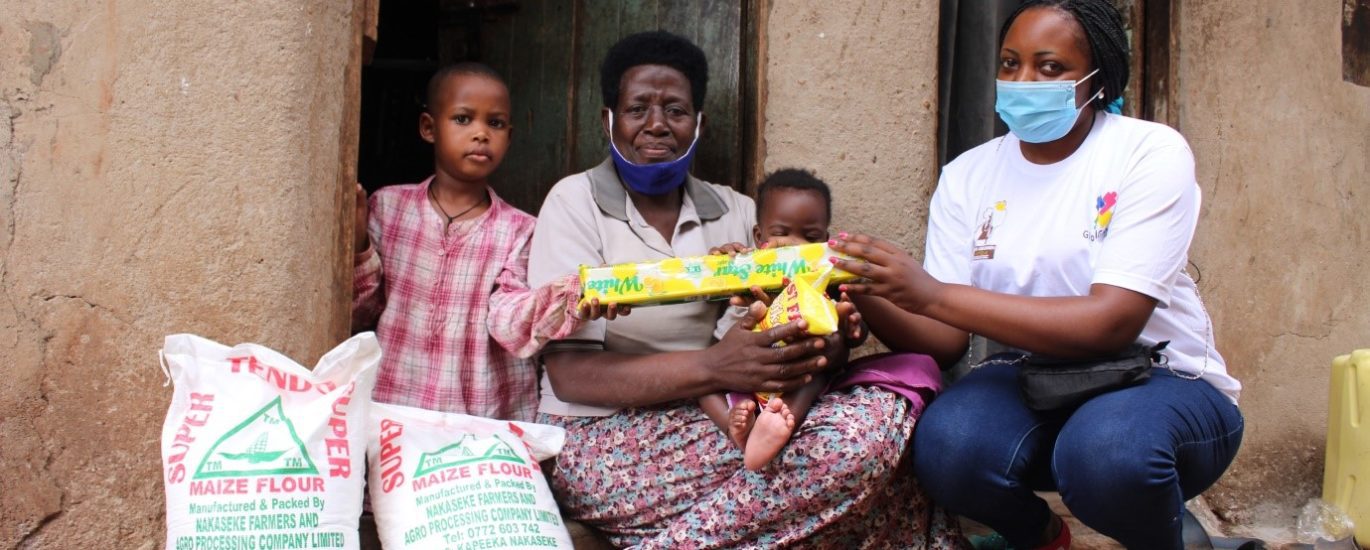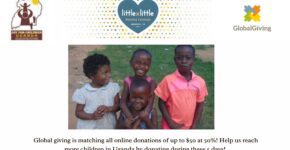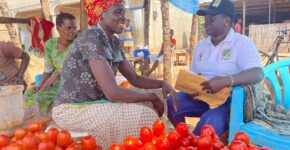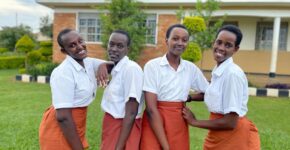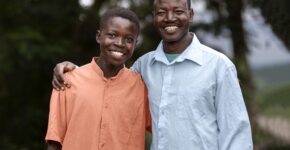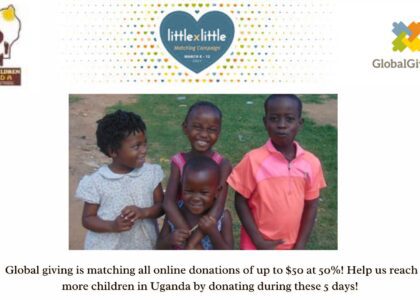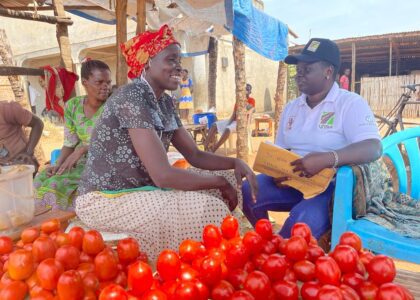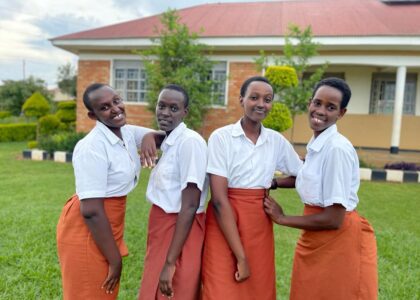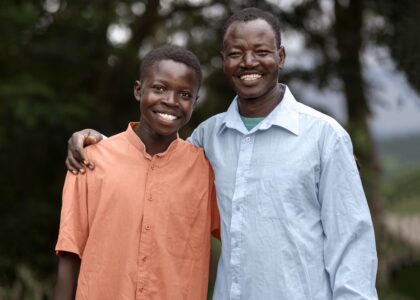RELIEF AID FOR FAMILIES IN KAMPALA’S URBAN SLUMS
The COVID-19 pandemic has persisted for almost a year and half and it’s negative impact has continued to affect vulnerable communities alike. As urban slum communities struggle with a shredded economy, loss of jobs and domestic violence among other challenges, lack of food remains one of the aggressive issues faced by underprivileged households in Kampala slums. Urban slums are squalid and overcrowded communities that inhabit poor people who suffer lack of access to clean water and sanitation facilities, inadequate living spaces with poor structural quality of housing. The cheap state of slum communities attract people of low earning or no employment since housing and other conditions are affordable. With the COVID19 negative impacts on the economy and stringent measures in place by the government to curb the spread of the virus, many slum dwellers have lost their jobs or their sources of income are no longer productive.
As the government and other development stakeholders continue to strategize on how they can support vulnerable communities, continuous food supply and sanitary aid is required. The Ugandan government and other stakeholders such as civil society organizations, private sector and religious institutions have provided relief packages for vulnerable communities.
However, these endeavors especially from the government have received a lot of criticism from the beneficiaries who indicate that low quality food is supplied and other intended beneficiaries miss out on the relief aid. Even considering recent cash transfers from the government, only about 10% of the intended beneficiaries received leaving many people in despair. Supporting vulnerable communities therefore requires consolidated efforts from all key stakeholders who are capacitated to give, no matter how small; it can make a remarkable difference in someone’s life.
About Us
Since 2005, JOY FOR CHILDREN UGANDA has been championing the rights of all children to live peacefully & without exploitation, to benefit from quality free education, to thrive in economic security & justice, and to prosper with access to clean water, good health care, & nutrition.
From working directly with communities in Uganda to advocacy at the international level, Joy for Children acts as a Bridge providing project implementation & services for international organizations who require local knowledge & expertise from a trusted Partner who also understands & works in the global development arena.
As an organization, we have served as leaders on a number of societal issues that impact the children, and relish a challenge to change out-dated paradigms & usher in new ways that benefit & elevate all.
In August 2020, Joy for Children Uganda was privileged top receive a generous donation from Ugandan SDA Community Toronto that has was used extensively to support 20 families of 200 people with food items and sanitary products.
The aid was received with utmost gratitude. JFCU is committed to continuously ensure that children’s rights and welfare are preserved. This is why we have stayed in touch with our community beneficiaries through our programs even in these tough times of the Covid19 pandemic. Some of our beneficiaries are in hard to reach places but our teams in different communities across the country are working tirelessly to ensure children receive the support the JFCU can offer.
On 13th August 2021, the heavy downpour did not stop us! We visited and supported 20 families in Mulago Katale and Mulimira zones slum communities in Kampala district. This was spear headed by our tireless staff, Charlotte Kusemererwa and Sandra Karungi.
Joy for Children Uganda appreciates the financial support from Ugandan SDA Community Toronto to support children affected the COVID19 pandemic and the current lockdown. The homes of families were identified by group leaders in the communities. Most of the households are headed by single mothers, elderly widows and the sickly. The package given to each family consisted of 10 kgs of maize flour,3 kgs of sugar,1 bar of soap,1 liter of cooking oil,5kgs of beans and a packet of salt.
The Need in the Community:
The situation in these communities is worrying. The children are not only hungry but also at risk of being victims of child labor, child trafficking and child marriages since schools have been temporarily closed in response to manage the spread of the deadly Covid-19 virus. Children may involve in bad peer activities or abused while their parents are busy looking for money and food for the family
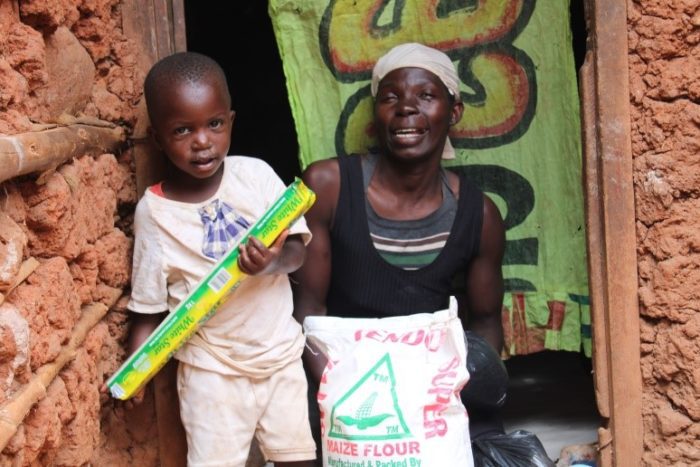
Some of the single mothers that benefitted from this aid mentioned that they walk around the neighboring communities looking for domestic work such as washing clothes, cleaning houses and cooking among others as they leave their children at home unattended to. In other cases parents send their children off to sale products in the city streets, these children have no adult to look out for them and hence the risks of abuse are high in such scenarios.
I cannot sit at home the whole day taking care of the children; I have to move around in the community to look for work so that I can be able to feed my family. said one of the women.
Food and sanitary aid is what we are able to give to the communities now, but the impact of the pandemic continues to dig deep in the lives of vulnerable poor. During the visit, an extra effort to understand what these families are going through beyond the need for food captured our attention.
Our Findings
Food and Nutrition
Families consume one meal a day that is consumed between 4pm to 6pm. This is done to allow the meal to take them throughout the night and day until the next meal. The most consumed food is maize flour commonly termed as posho, this is served with beans. This meal is mostly preferred because it provides high amounts of carbohydrates that give them a good amount of energy.
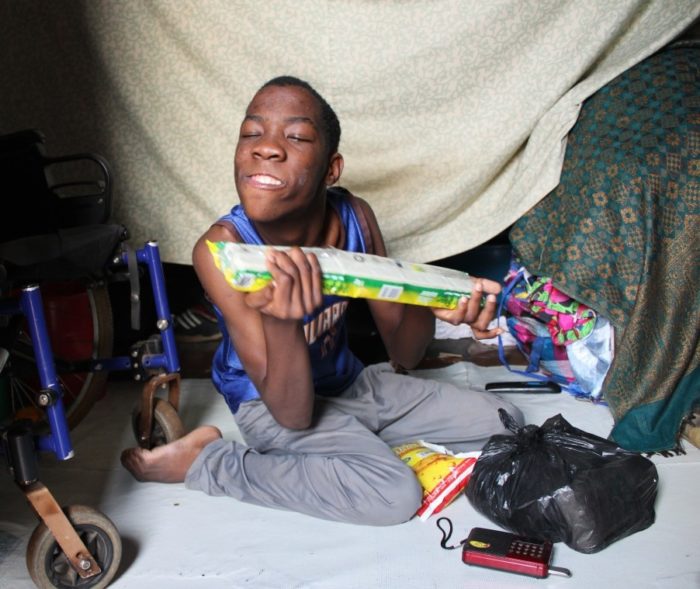
This type of meal does not contain enough protein, vitamins and fat for the proper development of the children hence increasing the risks of malnutrition in the near future. However, the food products are available in their immediate communities and are a bit affordable hence most preferred. In severe cases, some families mentioned that they do not afford the beans for days and hence eat the posho with tomatoes.
Moreover this meal of posho and bean soup (1kg of maize flour (@2,500shs); ¼ kg of beans (@1,000shs) and charcoal to cook is (@1,000shs) 4,500sh about 1.1 dollars but is still hard for the families to afford. This is an indication that if the dietary quality is not improved in these communities, children may suffer health complications as a result if malnutrition.
Household incomes
Given the type of work they do, most families live on “hand to mouth”, they engage in informal work such as roadside vending or micro income generating activities. The income is earned daily and is usually consumed without any savings left. Many have lost their trade spots on the city streets and have since not benefitted from a customer base that was drawn from the massive crowds in Kampala downtown, heavy traffics in rush hours, and school neighborhoods.
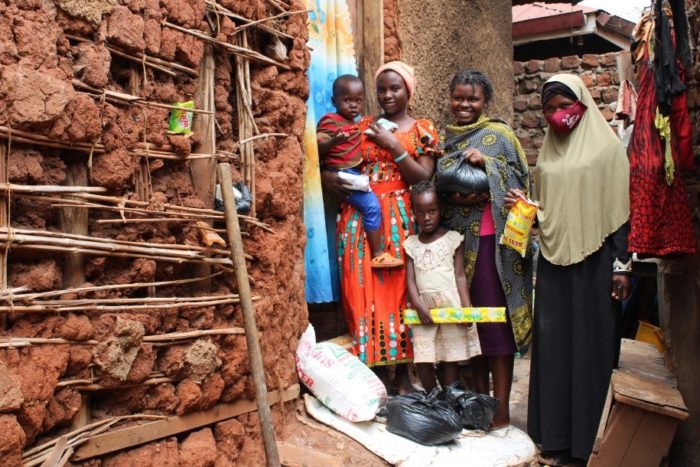
Women have turned to looking for domestic chores so as to earn. The jobs however don’t come every day hence they may go without earning. From these jobs, women earn 2,000 to 5,000shs a day. This money is expected to meet their dietary needs, house rent and medical bills.
Social security
Economic hardships have increased financial stress among families hence conflicts. Caregivers complain of misuse of resources or partners’ inability to provide. These family conflicts have also fueled separation and hence affecting women mostly. One of the beneficiaries shared that when her husband lost his job he wanted to force her to go back to her parents and when she refused he walked out on her leaving her to tender all the children.
Apart from intimate partner violence, parents are having a hard time raising children. Parents are scared of the unfavorable conditions in the slums especially for the girl child. As cases of teenage pregnancies continue to rise in Uganda, many parents have put stringent measures to protect their children. These are however stressful for the children as they overstep their rights and freedom to interact with friends. Also parents may inflict physical violence in order to discipline the children.
Education
Home schooling is unheard of among families living in urban slums as they have limited access to information, failure to afford technological devices, limited resources like constant power supply and also absence of interactive tutoring especially on the side of children. Parents also commented that schools have not issued any new materials for the children to learn, and even when charity organizations issued materials children are unable to consume them because they lack guidance.
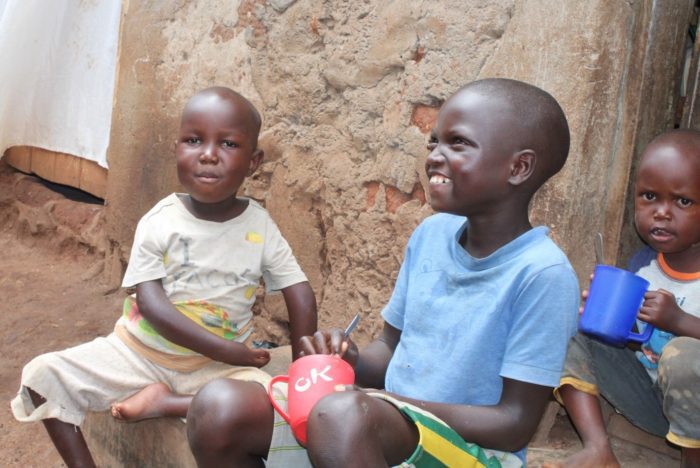
Social and economic challenges faced by underprivileged people will create long term effects in their social lives and will affect the process on their advancement economic independence. Addressing this economic catastrophe will require humanitarians and policymakers to not only respond to the immediate crisis, but also to take a multispectral view that accounts also for the diverse and overlapping dynamics driving outcomes. This will require deeper analysis of socio-economic impact on key sectors, in addition to their interplay social dimensions such as poverty, gender inequality and urbanization, to guide strategic short and long-term policy interventions for response and recovery periods. Effective implementation of such strategic short- and long-term policy interventions can also build resilience against future social economic shocks
Supporting communities combat the spread of COVID-19, and limit its impact on the fragile health systems by building people’s knowledge and awareness is what is essential now. We emphasized promoting preventative measure such as practicing good hygiene, wearing face masks and physical distancing measures, in line with national guidelines. With that we are hopeful that the spread of the virus will minimized and we will resume to a normal and healthy life.
While we are working together with communities in order to keep a healthy population we have in our strategic plans to provide communities with skilling and financial aid to facilitate production and business transitions in their immediate communities. With economic activities revamped, families will have a source of income to sustain them. And for this to be implemented effectively, urgent issues such as access to medical care services, food and sanitary products should be availed concurrently to those already affected.
Joy for Children Uganda on behalf of the communities sincerely appreciates the members of Ugandan SDA Community Toronto for their generosity, kindness and support rendered to the people in Uganda. May the God Lord richly bless you.

